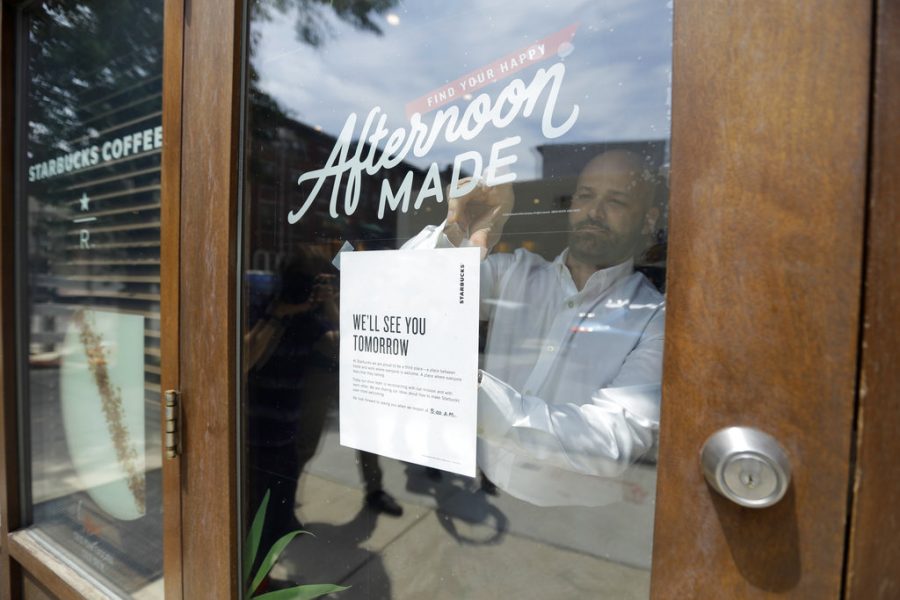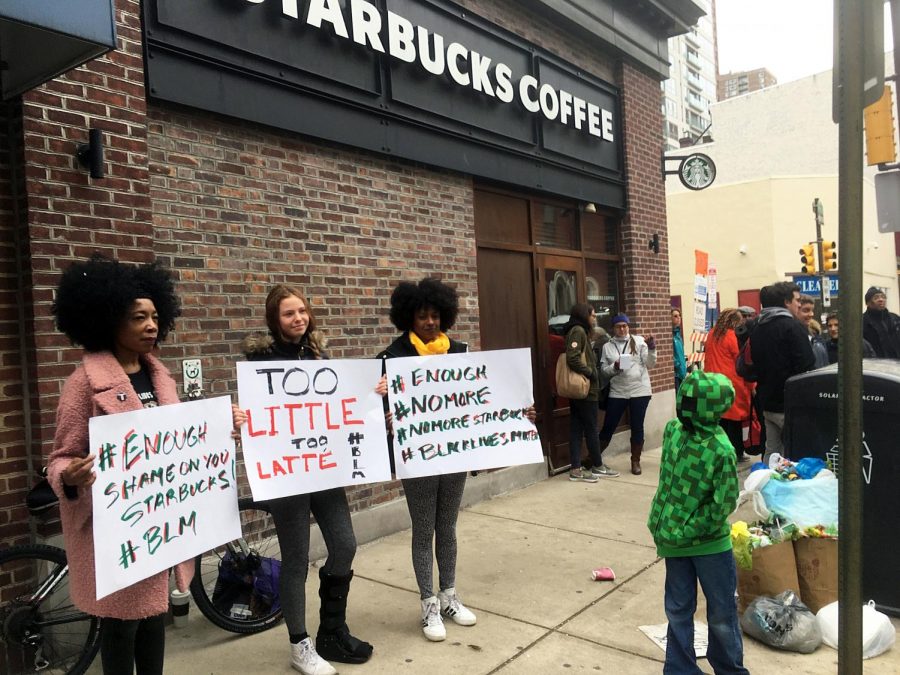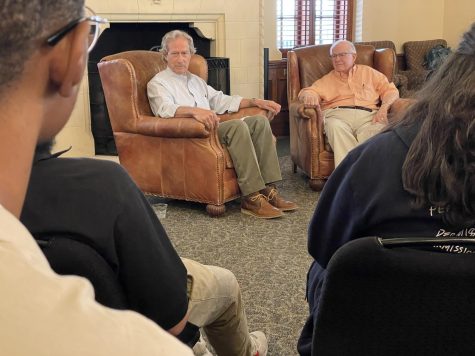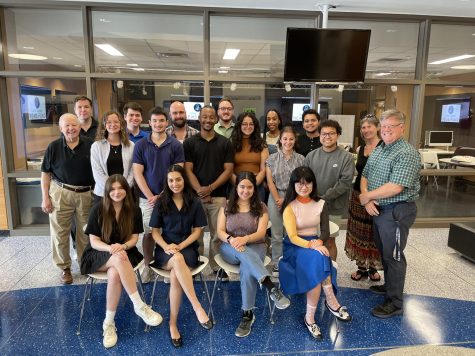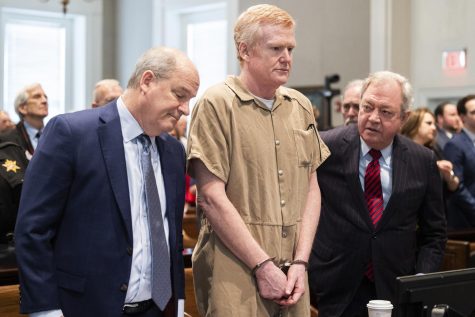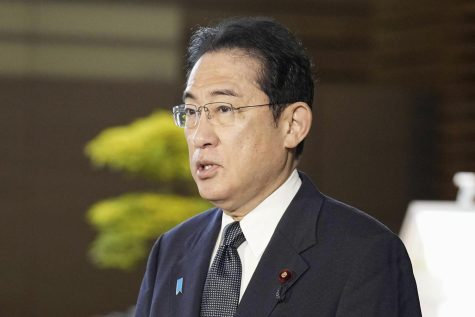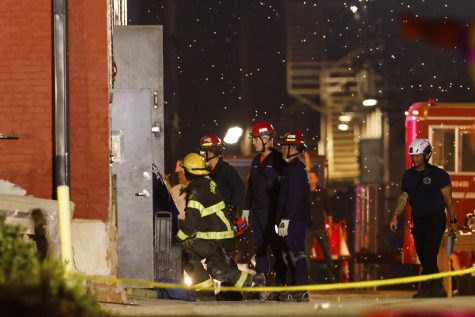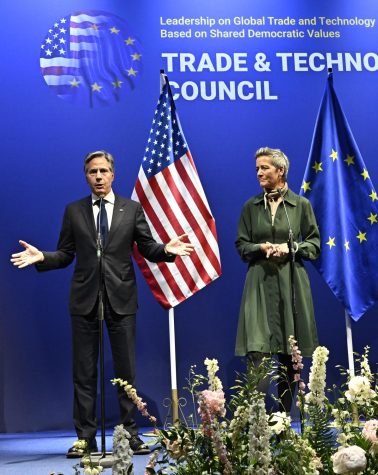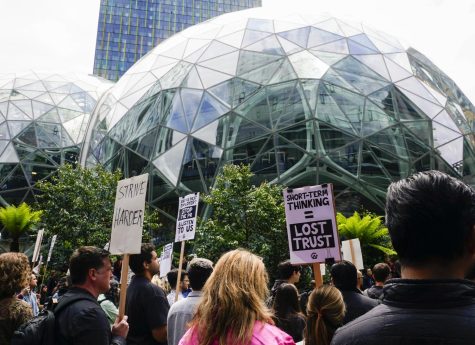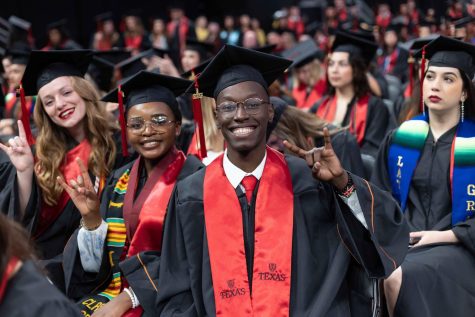Starbucks closes its doors for anti-bias training
Coffee chain responds to public outcry following the arrest of two black men.
A man tapes a sign to a door at a Starbucks Coffee shop, Tuesday, May 29, 2018, in Philadelphia. Following the arrests of two black men, Rashon Nelson and Donte Robinson, at this location, Starbucks closed more than 8,000 stores nationwide on Tuesday to conduct anti-bias training.
Turning away customers looking for an afternoon jolt of caffeine, Starbucks shops across the U.S. began closing early on Tuesday to hold training for employees on recognizing hidden prejudices.
It was part of the coffee chain’s effort to deal with the outcry over the arrest of two black men last month for sitting in a Philadelphia Starbucks without buying anything.
After the incident, the company’s leaders apologized, met with the men and scheduled an afternoon of training for 175,000 employees at more than 8,000 U.S. stores.
Self-described loyal Starbucks customer Darnell Metcalf, a 55-year-old black man from Miami, said he was dubious about how much a four-hour training session might accomplish for employees “raised to look at certain people a certain way and act a certain way.”
And he said the problem is not confined to Starbucks but exists at plenty of other retail chains where he has seen people profiled.
“It makes it look like they’re trying to, you know, quiet the storm,” Metcalf said outside a closed-for-training Starbucks. “They’re not solving nothing. They’re not going to fix this overnight. … It’s not Starbucks the corporation. It’s only certain employees who are like that.”
Starbucks has not said how much the training will cost the company or how much money it expects to lose from closing the stores during what is usually its least busy time of day.
Calvin Lai, an assistant professor of psychological and brain sciences at Washington University in St. Louis, said people should not place high expectations on this one day.
“We find that oftentimes diversity training has mixed effects, and in some cases it can even backfire and lead people who are kind of already reactive to these issues to become even more polarized,” Lai said.
One afternoon wouldn’t really be “moving the needle on the biases,” especially with a company that has as many employees as Starbucks, he said. “A lot of those employees won’t be here next year or two years or three years down the line.”
Starbucks has said the instruction will become part of how it trains all its workers.


